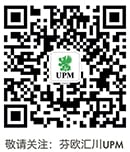From the beginning of 2004, UPM's Changshu fine paper mill in China has received pulp solely based on wood coming from forest plantations. The short fibre pulp originates from the pulp supply agreement made by UPM and Singapore-based APRIL. The pulp supply agreement is effective until the end of 2006.
A majority of the pulp used by the Changshu mill comes from APRIL's pulp mill in Indonesia consisting entirely of acacia grown in plantations. Besides Indonesia, Changshu mill buys long fibre pulp from Finland and Canada. UPM Changshu paper mill does not buy pulp originating from natural Indonesian forests.
APRIL's acacia plantations are founded on forest land that has previously been logged. These areas have been approved as plantations in the land use plan of the Indonesian government, of which some 20 per cent are left as buffer zones. As agreed between UPM and APRIL, the wood supply chain of APRIL was audited by Swiss auditing company SGS, in order to exclude any potentially illegal wood.
Apart from acacia pulp, UPM does not buy wood or supply any other forest products originating from Indonesia. An agency agreement with an Indonesian plywood producer was terminated at the end of last year.
The majority of UPM's production is based on a renewable resource, wood. The Group is committed to forest management and forest harvesting practices based on the principles of sustainable development. This commitment covers wood supply both for UPM's own mills and the same is required from external pulp suppliers.
For further information, please contact:
Mr Perttu Saarela, Vice President, Pulp Steering, tel. +358 204 15 0042
Mr Olav Henriksén, International Forest Affairs, UPM, tel. +358 204 15 0052
Mr Eliezer Lorenzo, Environmental Manager, Forestry APRIL, tel. +62 761 491 000 (operator),
+62 761 491 285 (direct)
UPM
Corporate Communications
April 8, 2004
